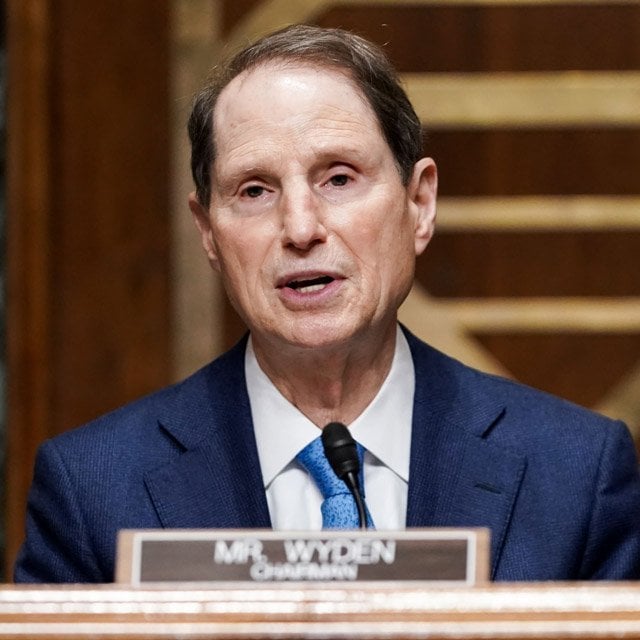Sen. Wyden Urges CMS to Enact Medicare Advantage Marketing Changes

What You Need to Know
The rule aims to curb deceptive and fraudulent market practices.
It also seeks to help seniors better choose the right plans and providers.
Sen. Ron Wyden, D-Ore., Senate Finance Committee chair, is urging the Centers for Medicare & Medicaid Services to finalize a proposed rule that would strengthen Medicare Advantage consumer protections for 2024.
In a Feb. 14 letter, Wyden called on CMS Administrator Chiquita Brooks-LaSure to finalize several policy changes the agency recently proposed for Medicare Advantage, including a crackdown on what he said were deceptive marketing practices by insurance agents and brokers, and improvements in provider directories intended to help enrollees find the right health care professionals for them.
Proposed changes to provider directories would include adding a professional’s cultural and linguistic capabilities, accessibility for people with physical disabilities, and indicating whether the provider offers medication for opioid use disorder.
Marketing changes for Medicare Advantage and Part D in the proposal include:
Notifying enrollees annually, in writing, of the ability to opt out of phone calls
Requiring agents to explain the effect of an enrollee’s enrollment choice on their current coverage whenever the enrollee makes an enrollment decision;
Requiring agents to share certain information with potential enrollees when processing telephonic enrollments
Simplifying plan comparisons by requiring medical benefits be in a specific order and listed at the top of a plan’s Summary of Benefits
Limiting the time that a sales agent can call a potential enrollee to no more than six months following the date that the enrollee first asked for information;
Prohibiting marketing of benefits in a service area where those benefits are not available, prohibiting the marketing of information about savings based on a comparison of typical expenses borne by uninsured individuals, unpaid costs of dually eligible beneficiaries, or other unrealized costs of a Medicare beneficiary
Limits around the use of the Medicare name, logo and Medicare card
Prohibiting most use of words like ‘‘best’’ or ‘‘most’’ in marketing.
Public comments on the proposed rule closed Monday.
“The Medicare Advantage program has provided Oregonians and Medicare beneficiaries around the country with value by offering plans that coordinate care and invest in the long-term health of their enrollees. However, it has become clear that not all enrollees are seeing that value or being put first,” Wyden wrote.
“I strongly support the proposed rule as it seeks to restore important protections against deceptive and fraudulent marketing tactics, expands access to non-physician behavioral health providers, and promotes health equity for historically underserved communities,” he said.
Medicare Advantage plans cover 30 million people, nearly half the 65 million U.S. residents with Medicare coverage.
The senator released an investigative report in November that he said found “fraudsters and scam artists … running amok in Medicare,” targeting older adults with deceptive Medicare Advantage marketing practices.




